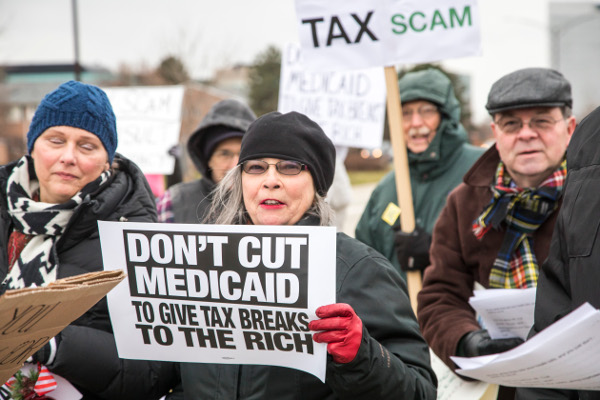
PHOTO/JIMWESTPHOTO.COM
The Trump administration on Jan. 11 announced it will allow states to apply for federal waivers allowing them to impose work requirements on “able-bodied” adult Medicaid recipients. Kentucky had already submitted such a request, and on Jan. 12 became the first state to require many of its Medicaid recipients to work or face losing their benefits. More than a dozen other states have applied for such waivers or plan to. (It’s worth noting that about 60% of working age, non-disabled Medicaid recipients nationally are already working.)
The Kentucky plan calls for most non-disabled Medicaid recipients aged 19 to 64 to work at least 20 hours a week. Kentucky predicts the work rule will result in about 100,000 fewer Medicaid recipients in the state after five years and save about $2.4 billion. And that’s part of the point, of course—the billionaires who run the government want to kick more people off of public aid programs of all kinds. The billionaires want that government money for themselves—that big tax cut they just got has to be paid for, after all—and they also want more money for the military. And they don’t want to support labor they don’t need.
The other agenda here is to pit us against each other. There is a certain level of support in America’s working class for blaming the poor for the economic system’s failure. Going back to the colonial period, the ruling class has made a distinction between the “deserving” and the “undeserving” poor. This outlook has been taught to the people, and it persists to this day. In a 2016 survey, the LA Times found that even among blue-collar workers, many view the poor “as a class set apart from the rest of society,” permanently trapped in poverty. And the Times found that most Americans “do not believe that the government bears the main burden of taking care of the poor.”
If not the government, then who? It has never really been possible for everyone to “make it” in America, and this is even more true today, with robots and computers eliminating more and more jobs and driving down wages for those still working. The jobs aren’t coming back, and making slave labor out of people getting public assistance is not going to help any of us. We, the people, have a right to food, education, water, housing, health care and all other basic necessities, and the government is obligated to guarantee these things when the failing economic system won’t. What we really need is an economy where the abundance of necessaries produced today is provided to everyone.

